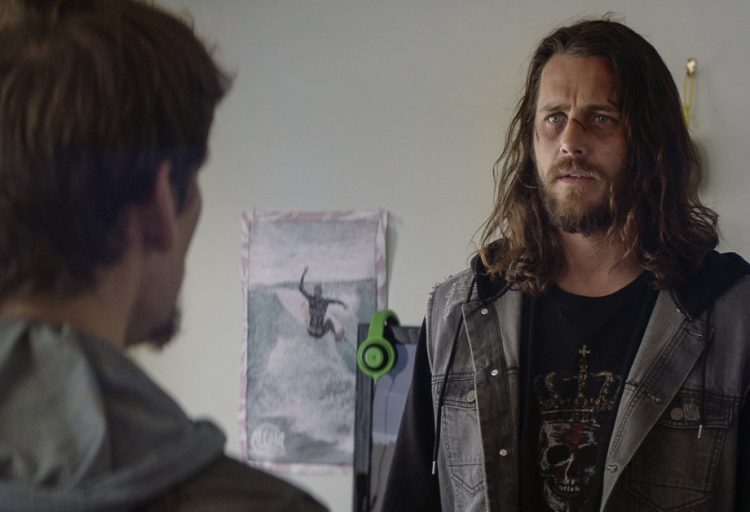Sixteen years ago, it was a morning like any other as I helped my son’s first grade teacher herd twenty- five little heads into the classroom. I usually volunteered once a week, and I loved it. I loved the kids’ bustling energy, their innocence. Before that day got started, though, the teacher corralled me in the hallway, which made me nervous. Going into the hall never amounted to anything good, I thought.
“I wanted to talk about Danny,” she said gently.
Oh, shit. Not good. “Oh?” I said, my voice garbled. “Is everything okay?”
“Don’t worry. He’s as sweet as pie…but…”
How familiar that pattern would come to be. The old sandwich method at work: compliment, bad news, then helpful suggestions.
“I think he needs to be tested,” she said, a sympathetic look in her eyes now.
A wave of dread roiled in my belly. “Ah,” I managed. “For…?”
“Special education eligibility.”
I stammered like a monosyllabic fool. “I…uh, see. Well, um…why?” You know why, I thought, feeling nauseated.
She showed me samples of his math work, peppered with red marks. To this day, red pens make me blanch. She explained his trouble with making change and telling time, things I’d known but cast aside. I said something like, kids sure needed to know a lot these days, and well before I remembered needing to know them. Weren’t all six-year-old kids struggling with such complicated concepts?
The sympathetic look intensified. “No,” she said. “They get it.”
Everyone, that is, but my child.
I was shaken, but the full impact wouldn’t come until later. I wanted to go back in and see him as an objective observer would, if that was possible. He was easily found; his copper curls shining like jewels wherever he went. His Irish coloring always attracted attention and envy, and as I watched him with newly painful vision, I could see he’d probably stood out for different reasons within classroom walls. Before these moments, I had simply dismissed his delays as “every child develops differently.” And it’s an adage I still hold as true. But what I would also come to know, is that the world has no patience for late bloomers.
And so, I saw with a heavy heart how my lost lamb looked constantly at his peers for what to do next. His head swiveled around, searching me out to clarify, as if to say, “It’s reading time now, right?”
I nodded, willing the tears back. This was his reality, 24/7. To feel unsure.
Soon came the unmistakable look of relief on his freckled face. Recess! Play! The twenty- minute break would be his saving grace for years to come, and the one activity in which he wasn’t two steps behind. We went outside and the children’s laughter was infectious, a balm to the wound expanding in my chest.
“Watch, Mrs. C, watch!” they shouted from the slides. And there he was, looking down at me as his auburn crown sparkled in the sun.
“Are you watching, Mom?” he yelled.
“Yes!” I shouted. “I see!”
And now, I did.
Of course, what his teacher shared that day didn’t come as a complete shock. I’d struggled mightily in school. But back in the day it was easy to fake it till you made it, especially if you scored high in language arts, which I did. Unfortunately, the feeling that everyone except for you gets “it,” whatever the “it” is, isn’t easily forgotten. So, when our first son started kindergarten I held my breath. Luckily, he excelled, and I could exhale. Yes! Home free! Their father’s math and science genes had triumphed! The illusion remained until that day, and I knew the jig was up. My faulty DNA had won this time and there would be no faking allowed.
Everything I’d ever assumed about education, learning, teachers, parenting and family dynamics, all would be thrown into question and turned upside down. My personality, basically terrified of authority, turned warrior-like. My career path veered from early childhood education to advocacy for special needs families. The transformations took a long time, the journey full of potholes.
In the beginning, all I knew about special education, other than I had somehow managed to avoid it, is that “those kids” went into separate rooms and were dumb as a box of rocks. In those early IEP meetings, which is what you participate in when your child qualifies, I was the box of rocks, mute and clueless. The professionals threw acronyms around and I nodded like a bobble head as I signed my kid’s life away.
“Do you understand, Mrs. Cassidy?” the principal solemnly asked me, clearly wanting to be done.
And just like sitting at a desk thirty- five years prior, I said yes when I should’ve said no, because I was scared again of not knowing the answers.
Danny was now one of those pulled out of the room, though the tide has turned to inclusivity these days. He was diagnosed with learning disabilities, primarily in math, and with ADD. I knew if I was going to help him I’d better become informed, so I read like crazy. I attended workshops, pored over books. I listened to a lecture by psychologist Rick Lavoie, whose teachings saved my soul. His message was powerful. He detailed how kids with LD’s are misunderstood: by schools, by the public, by everyone.
I was beginning to get dangerous, difficult, as I pushed for accommodations for Danny. I didn’t want to be the obnoxious parent the staff all whispered about, but my need for approval had died out long ago. I started to challenge seemingly pointless practices. I questioned the busywork, also known as homework, that hounded him. One thing became certain. If I dreaded homework as a kid, I now loathed it, thanks to the daily combat of getting my son to sit down for more drudgery. Because, you know, seven hours of sitting wasn’t enough. And after one too many tear-filled sessions, I brazenly admitted to finishing it for him. More than once.
My friends were horrified. “Think of the bad example!”
I laughed. “Way too late for that.”
“Well,” the huffing continued. “I’m sure teachers know it’s your handwriting.”
And I was sure they didn’t, because Danny’s indecipherable scrawl hadn’t changed from kindergarten. Anyway, I didn’t care. I fought for his IEP to include “reduced homework.” I did this not only so I could gulp less wine to get through the evening, but because it was right. The research on the ineffectiveness of homework was there. I wished I could eviscerate it from every kid’s backpack.
Life continued. Middle and high school contained the usual horrors. I charged ahead, determined to get him to graduation day; and we did, albeit bleeding and battered.
There’s an essay circulated to many parents whose children have disabilities called, “Welcome to Holland,” and it equates raising a baby to taking a trip. Within the story, it’s revealed everyone else landed in Italy, and, against your wishes, you end up in Holland. And forevermore, the other parents brag about how great it is in Italy, while eventually you adjust to the magic that is Holland. This was our reality, and in time I came to see our trip was richer because of knowing what matters. I didn’t care about him winning any awards. I wanted to get him to the finish line, limping if he had to. Sixteen years ago, our itinerary shifted course, and what I found is that the route left an indelible mark. By its competitive nature, the system shredded whatever feelings of competence he might’ve had, because the emphasis on what he couldn’t do was unrelenting. I tried to offset the damage. Looking back, I probably should’ve given homeschooling more consideration, but I got pushback from every angle. So it goes.
He’s twenty-two now, and still as sweet as that first grader. He’s also funny, kind, and razor-sharp perceptive, sometimes painfully so. From a recent conversation:
“You sugarcoat everything. The truth is, my mind is missing normal parts. I don’t think like other people do.”
He doesn’t buy it when I say this could be a gift as much as a curse, because he’s still trying to find his place, find his tribe. College feels like an un-climbable mountain, and his organizational deficits dog him. But here’s what I know: he’s a hard, honest worker, and I pray for the world to see what I see. To see the kid who shared his lunch money, the kid who held the door open for his grandpa, the kid who worried that the fish he caught in the basket might die. That kid is goodness personified, now grown up. And like the day I looked at the radiant boy waving from the top of the slide, the view of the man I see now is equally beautiful. Please see it, world. Please.
Ellen is a fifty-one-year-old writer living in “The Mitten,” also known as the beautiful state of Michigan. She is a proud Spartan graduate who spent many years working with children and is looking forward to celebrating twenty-five years of marriage this summer, as well as the wedding of her eldest son. When she’s not procrastinating and drinking craft beer, she walks the shores of Lake Michigan looking for inspiration for her novel in the making.








Kris Kauchak
A pleasure to read this polished, honest essay, as it is a pleasure to know you and your family, Ellen.
Janet
Thank you, Reading your story made me face the guilt I hold onto. Maybe I can let some go now. I was so alone and lost with Nick’s education. He told me he was different and didn’t think like anyone else . It was painfully clear he didn’t fit in.
You have a beautiful talent.
Ellen Cassidy
Janet, sending you virtual hugs. 🙂 the truth is, parenting is hard. Throw in a kid who defies any label listed in a parenting or school manual, and it’s doubly so. I have many regrets about things I did or didn’t do…Its part of being human. But I think as we and our kids grow older, it’s important to acknowledge most of our missteps came from a place of love. Or, just flat out not knowing any better. So it’s well past time to kick that guilt to the curb for good and embrace the wiser people we have become through the trials…
Ellen CAssidy
Thanks Kris. I can always count on you to read my musings, and I appreciate it so much
Debra Mead
This is so well written Ellen. I’m glad you are using your words to continue the fight and bring understanding to others about disabilities. Enjoy the upcoming wedding of your son. My Daniel was married on 5-27 of this year, so I can relate to some of the emotions you may be experiencing. Miss you.